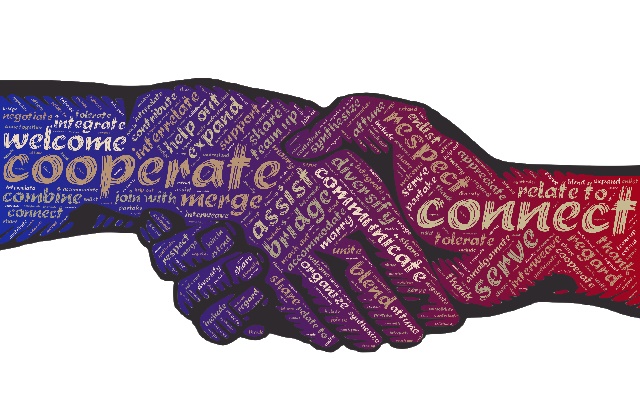After the parades and Pride ‘season’ come to an end, the burning question is: What else can the financial services sector do to promote and support inclusivity?
Efforts are gaining momentum, but they need to go beyond attending a parade and briefly adding a rainbow to a firm’s logo.
“Visibility is key,” according to Colette Comerford, head of inclusion and culture at Legal & General Investment Management.
On 24 September, she was named lead role model ambassador for financial services representative organisation LGBT Great.
International Adviser sat down with Comerford to talk about the role and her plan to build a global network of ambassadors to improve LGBT+ visibility around the world.
One step further
“LGBT Great has really shone a light on visibility, globally, and on the importance of standing up for everybody in the industry,” Comerford said.
She believes that the #50for50 campaign, where 50 c-suite executives pledged their support to LGBT+ diversity and inclusion within the sector, was a catalyst.
As lead role model ambassador, Comeford has been tasked with reaching out to industry communities worldwide and creating a network of role models and ambassadors.
“Whether you’re in the UK, the US or in Asia, of course it’s about being safe first of all,” she said.
But visibility has to take centre stage.
Comeford hopes to create a space “where you can be visible, where you can express why this is important as an LGBT+ person, or as a role model ally; where you can stand up and say, ‘how can I make a difference for others right now?’”.
“We really need you.”
The more the merrier
“I can’t do this on my own,” she said. “I need others to help me, role model ambassadors in particular, because it allows us to connect with people in other companies and jurisdictions, who can come together and say, ‘we can make a difference’.”
And representation plays a vital part as well.
Comeford believes that, with the financial services industry being predominantly populated by people of one specific gender and/or ethnicity, it is vital to recognise everyone.
“I would like role models to represent those communities,” she said. “I do think that it’s really important to have visibility across the spectrum.”
Helping hand
Every local community, however, will need to tailor the way it promotes visibility and inclusion; as being LGBT+ is still illegal in many countries, and a person’s sexual orientation or gender identity could be grounds for them losing their job in others.
That is why allies play a fundamental role.
“This is your opportunity to really listen, and use your voice to talk about these issues, to stand up for them and be supportive in whichever country you’re in,” Comeford said.
“I recognise that, for the LGBT+ community, visibility is harder.
“Allies [tend to] step forward first. And they’re usually visible in terms of showing their support; the LGBT+ community moves a little bit slower.
“It takes a number of steps sometimes to help them feel comfortable, [but for some of them] having a public profile may never happen.”
And if they live in a jurisdiction that is not accepting of LGBT+ people, they are going to face additional challenges.
“We cannot allow things to go backwards,” Comeford said.
Looking up
That is why the industry needs role models, she said, to have someone people can turn to.
“If they need help, if they just need somebody they can reach out to; it’s about showing support entirely.
“You can make a massive difference just by speaking [out], without making a big bang until you’re ready to do so.”
The whole reason for creating a network of ambassadors and role models is not only to expand these efforts globally, but also to understand and represent people coming from different life experiences and backgrounds.
This is why intersectionality – the belief that people are made of many different facets and are not defined by a specific feature – is “critical”, Comeford said.
“I think it’s really important that we do recognise now that we’re not just one aspect, we’re more than one thing. And [we need to] stop getting caught in the silos of gender, nationality, the work that you do you, etc.
“We’re more than one of these things.”
Understanding differences
“I think it’s really important that [we create a] community of ambassadors. We want to move to a stage where we’re talking about diversity and everyone feels a part of this.”
And white, heterosexual men are also part of this, Comeford said, because they “have a voice that is incredibly powerful and can help the rest of the [financial services] industry and its community”.
“It’s about everybody coming together, not just assembling out ambassadors. There is no hierarchy to it; it’s about visibility, community and connection.”
To mark 50 years since the Stonewall movement begun in 1969, International Adviser is publishing a series of articles and profiles of LGBT+ professionals to understand their working and personal experiences in navigating the sector.
Last Word is the exclusive industry media partner of LGBT Great, a financial services representative organisation focusing on diversity and inclusion.








